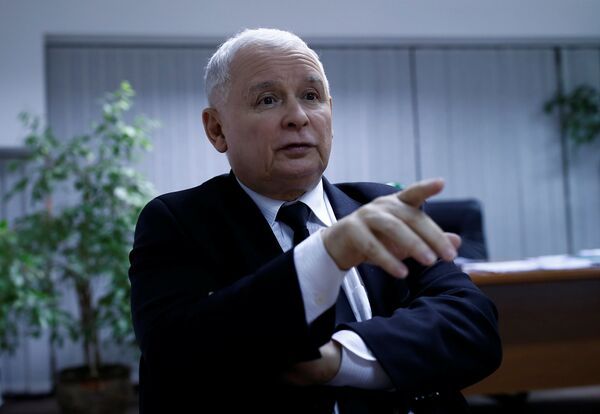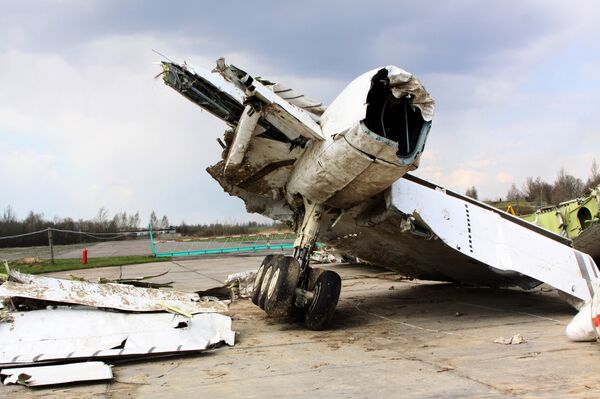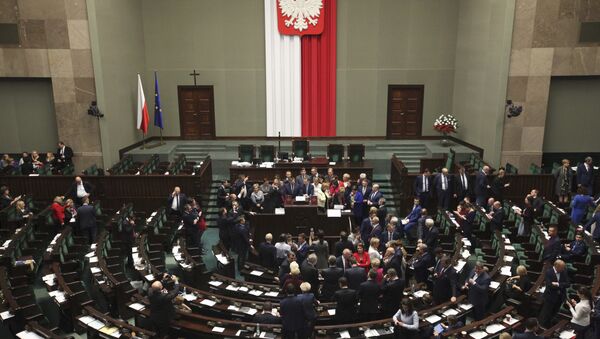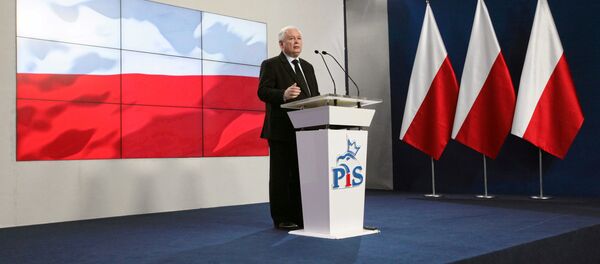There have been huge demonstrations in Warsaw as the government seeks to influence the appointment of judges.
My remarks in the press room after today's Commission discussion on judicial reforms in Poland are online now: https://t.co/tiIRpqukZg pic.twitter.com/OLlSm3qvhK
— Frans Timmermans (@TimmermansEU) 19 July 2017
Earlier in July, the Polish parliament introduced legislation which allowed it to nominate judges on the National Council of the Judiciary (KRS), the body which appoints judges across the country.
Prime Minister Jaroslaw Kaczynski and his Law and Justice Party control the parliament in Warsaw and could effectively appoint judges.
In a heated debate on Tuesday (July 18) Mr. Kaczynski accused the opposition of being "rats," who were responsible for killing his brother, former president Lech Kaczynski, who died in a plane crash in 2010.
"These are fundamental reforms that deeply transform our political system. The process lacks transparency, the drafts were not properly opened to opinions before proceeding. They violate the constitution in number of ways," said Ewa Letowska, a former Supreme Court judge.
The European Commission said on Wednesday (July 19) it was launching a sanction procedure against Poland.
The Commission's Vice President Frans Timmermans said the EU was "very close" to triggering Article 7, a sanction which has never been used before and would suspend Poland's voting rights in the council of ministers.
Mr. Timmermans said Mr. Kaczynski's plans would "put the judiciary under full political control of the government."
Earlier this year, the EU warned Poland not to press ahead with the legislation. It followed a warning first issued in July last year.
Rafal Trzaskowski, an MP with the opposition Civic Platform party, said Mr. Kaczynski's government was now a pariah.
"It's absolutely clear that patience is running out, not only in the European commission, but also in many European capitals," he said.
"The initiation of Article 7 would be unprecedented, and it would show quite clearly how marginalized the current government is in the European Union," he added.
But Article 7 can only be passed if it is approved unanimously and Mr. Kaczynski's close ally and ideological soulmate, Viktor Orban of Hungary, has said he would veto such a step.

Poland also faces being hauled up in the European Court for breaching EU law.
Poland's President Andrzej Duda appears to have cooled on the idea. But he is a former Law and Justice MEP, who was handpicked by Mr. Kaczynski to run for the job and is unlikely to veto the legislation.
"I agree that reform of the KRS is needed, and with the essential direction of that reform. I'm also convinced that the Supreme Court needs reform," said Mr. Duda.
The Law and Justice Party also plans to retire all judges on the Supreme Court except those designated by Justice Minister Zbigniew Ziobro, and lower the qualifications required for judges, which would allow it to stuff the court with its allies.
The Law and Justice Party draws its support from conservative and devoutly Catholic voters who resent multiculturalism, and support a brand of fierce Polish nationalism.
But Mr. Kaczynski's own views are intrinsically linked with the pain and bitterness he feels at the death of his twin brother Lech, who died in an infamous plane crash in 2010.

He was one of 96 people on board a Polish air force Tupolev Tu-154 plane, which crashed hed near the city of Smolensk in Russia as it arrived for a ceremony to remember the victims of the 1940 Katyn massacre.
Mr. Kaczynski reportedly remains adamant the Kremlin was behind the accident.
In 2016, Warsaw launched a new inquiry and the investigators claims the president's plane began to break up in the air, and one of the most likely explanations for the crash was thermobaric explosives going off inside the aircraft, an idea both Russian and Polish investigators from the earlier investigations have described as ludicrous.
In June, the Polish Defense Ministry asked prosecutors to investigate the original crash investigation.



